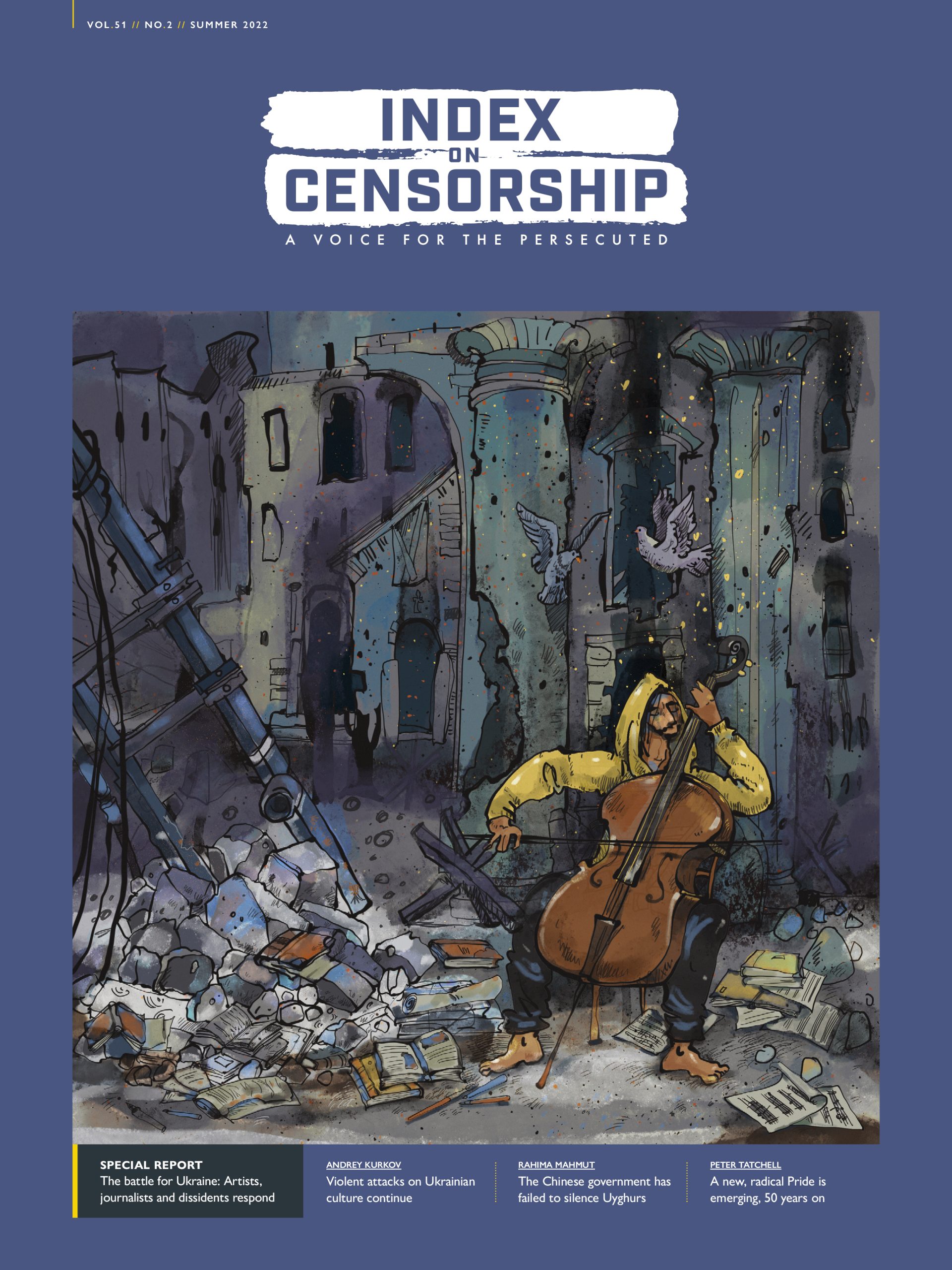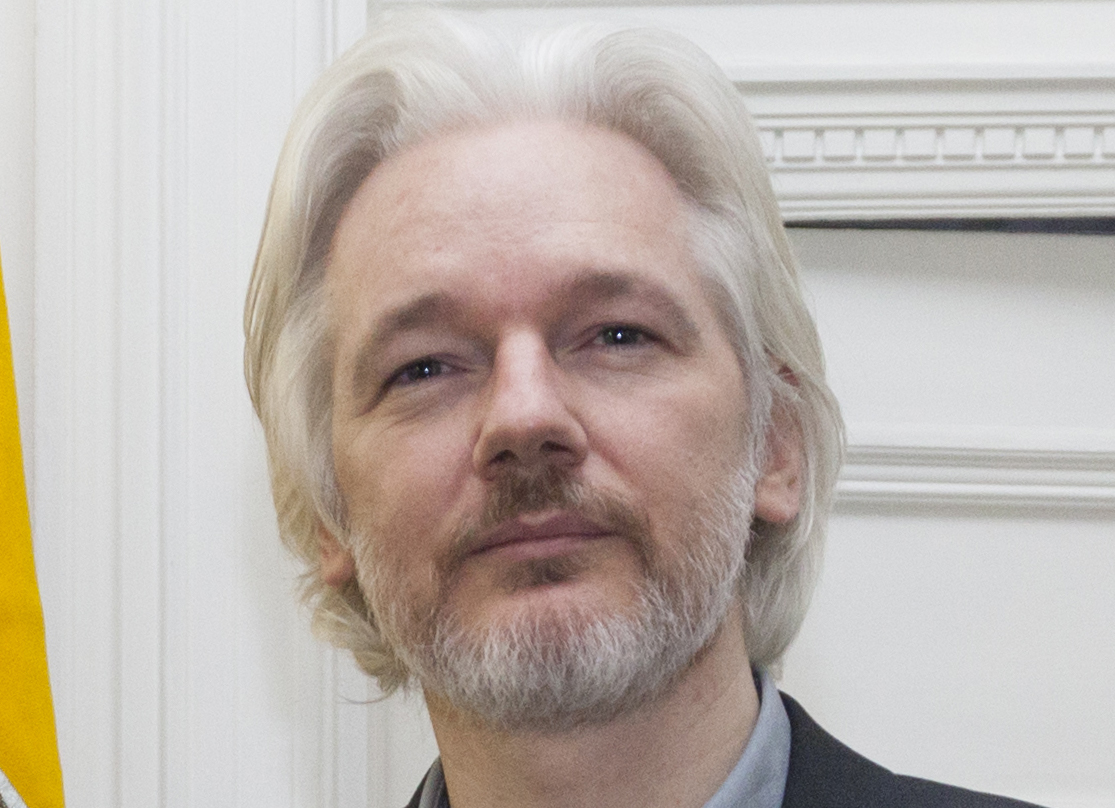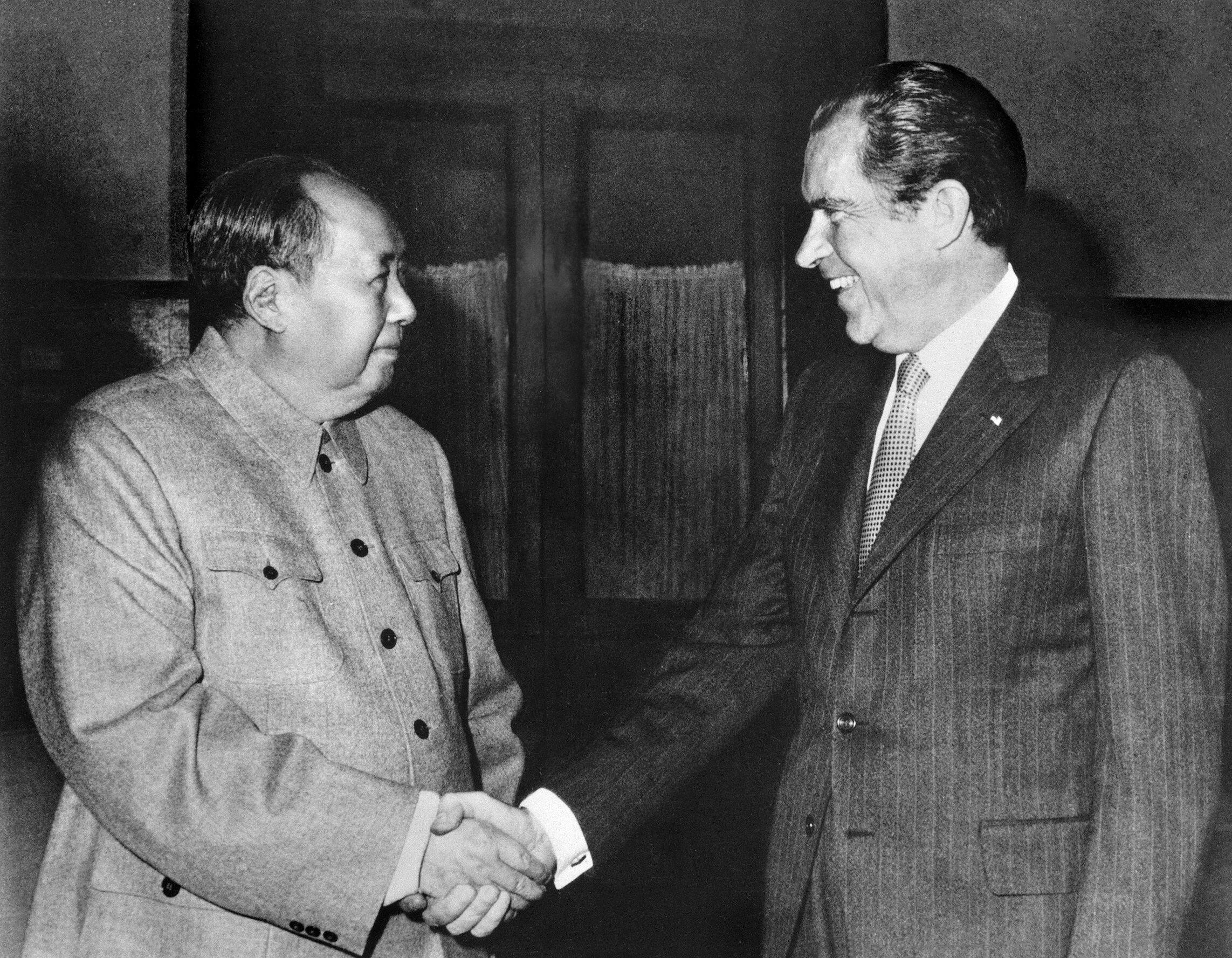The summer issue of Index magazine concentrated its efforts on the developing situation between Russia and Ukraine and consequential effects around Europe and the world. We decided to give voice to journalists, artists and dissidents who chose to...


The summer issue of Index magazine concentrated its efforts on the developing situation between Russia and Ukraine and consequential effects around Europe and the world. We decided to give voice to journalists, artists and dissidents who chose to...

Home Secretary Priti Patel’s decision will have a chilling effect on journalism and put the Wikileaks founder at risk

The news coming in from Belarus, Brazil, Hong Kong and Russia is devastating, writes our CEO Ruth Smeeth

When our leaders opt in and out of laws and norms they don’t like then repressive regimes thrive and their citizens are the ones that suffer

The tech entrepreneur has made it clear that free speech is at the forefront of his decision to buy the social media platform. We explore just what this means

A new report by GreatFire and whistleblower Ashley Gjovik reveals the tech giant complies with far more requests from the two governments than elsewhere

We all want to protect each other from seeing the worst of humanity but we have no right not to be offended

Our CEO Ruth Smeeth reflects on the passing of former US Secretary of State Madeleine Albright

The multi-award winning novelist, essayist, poet and activist wrote in the 50th anniversary issue of Index on Censorship magazine

[vc_row][vc_column][vc_column_text] You may have heard that the 70s were different. In 1972, when the first issue of Index magazine was launched, no one knew that 20 years later there would be an influential economic bloc called the European Union....
Smears about the media made by US President Donald Trump have obscured a wider problem with press freedom in the United States: namely widespread and low-level animosity that feeds into the everyday working lives of the nation’s journalists, bloggers and media professionals. This study examines documented reports from across the country in the six months leading up to the presidential inauguration and the months after. It clearly shows that threats to US press freedom go well beyond the Oval Office.
“Animosity toward the press comes in many forms. Journalists are targeted in several ways: from social media trolling to harassment by law enforcement to over-the-top public criticism by those in the highest office. The negative atmosphere for journalists is damaging for the public and their right to information,” said Jodie Ginsberg, CEO at Index on Censorship, which documented the cases using an approach undertaken by the organization to monitor press freedom in Europe over the past three years. Learn more.